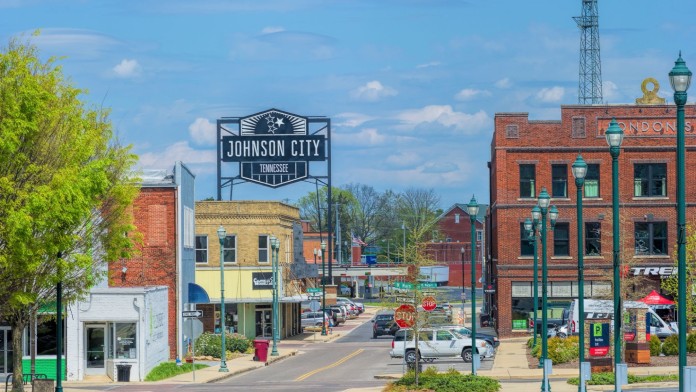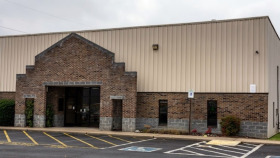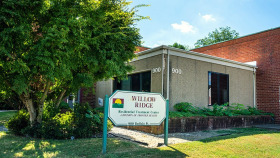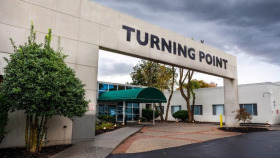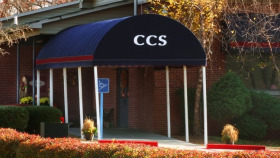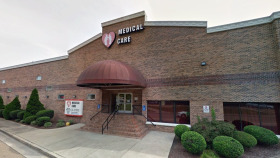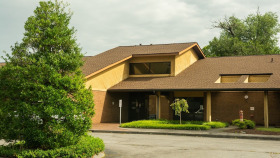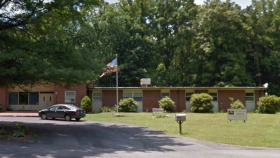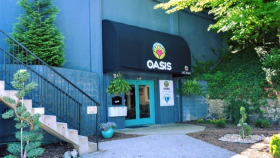Substance Abuse Statistics in Johnson City, MA
Being a college town, Johnson City is no stranger to illicit substance use or binge drinking. However, the opioid epidemic has posed a serious problem in the city. The use of opioids typically begins as a way to manage pain under medical guidance or through recreational experimentation— but for some it becomes an all-consuming addiction.
Here’s an overview of opioid statistics for Tennessee, Washington County, and Johnson City over the recent years:2,3
The number of drug overdoses in Tennessee rose from 1,818 in 2018 to 2,089 in 2019.
In 2018, the overdose rate due to fentanyl and other synthetic opioids reached 12.83 people per 100,000 in Washington County.
Levels of Care for Rehabs in Tennessee
To meet diverse treatment needs, several levels of addiction treatment are available.
Detox
Detox is the process of safely and comfortably clearing your system of all drugs and alcohol. It occurs in a supervised setting, to manage withdrawal symptoms and allow you to move forward with recovery services.
Residential or Inpatient
Residential or inpatient treatment involves receiving 24/7 care while you live at a rehab facility. Treatment methods include individual, group, and family therapy. Additional methods may include medication, recreational therapy, and other holistic therapies.
Partial Hospitalization Programs (PHPs)
Partial Hospitalization Programs usually provide similar treatments as inpatient services, but you only stay at the facility during treatment times, then return home.
Intensive Outpatient Programs (IOPs)
A step down from PHPs, IOPs often serve as a transition from PHPs to outpatient treatment. IOPs provide several hours of treatment over several days per week. Treatments often include individual and group therapy.
Standard Outpatient
Standard outpatient programs are the least intensive treatment option. They involve two to three hours of care per week, typically at an outpatient clinic or a therapist’s office.
Aftercare
Aftercare provides follow-up and ongoing support after you complete an inpatient or outpatient program. It may include 12-step meetings and continued therapy, with the goal of relapse prevention.
How to Pay for Addiction Treatment in Johnson City, Tennessee
Private Insurance
Tennessee residents are protected under the federal Mental Health Parity and Addiction Equity Act. This law requires all insurance companies to provide at least some coverage for substance abuse treatment. However, plans differ regarding specific coverage, and copays and deductibles may apply.
Tennessee Medicaid
TennCare is Tennessee’s Medicaid program. It provides healthcare coverage for Tennessee residents who are parents or caretakers of a minor, pregnant, elderly, or have a disability. To qualify for Medicaid, residents must meet income and resource limits.4
Tennessee Medicare
Medicare provides healthcare coverage for Tennessee residents 65 and older and those with certain disabilities. This government program includes coverage for addiction treatment under various plans. However, not all rehab facilities accept Medicare as a method of payment. The Tennessee State Health Insurance Assistance Program (TN SHIP) provides free counseling and assistance to Tennessee residents who qualify for Medicare, to help them understand and access these benefits.
TRICARE in Tennessee
TRICARE in Tennessee provides health insurance coverage, including coverage for addiction treatment, for military personnel, veterans, and their families.
Sliding Scale Rehabs
Tennessee residents who attend a sliding scale rehab program pay only what they can afford based on their income. To qualify, they must provide proof of income when applying for treatment in Tennessee.
IHS-Funded Drug Rehabs
The Indian Health Service (IHS) is a health program for Indigenous people, funded by the federal government. The program offers free or low-cost SUD treatment for Native Americans and Native Alaskans.
Local Information for Johnson City, Tennessee
 If you have plans to visit a loved one who is currently receiving treatment at a drug rehab in Johnson City or an alcohol rehab in Johnson City, you’ll want to plan your trip accordingly.
If you have plans to visit a loved one who is currently receiving treatment at a drug rehab in Johnson City or an alcohol rehab in Johnson City, you’ll want to plan your trip accordingly.
Here are a few travel tips for getting there, getting around, and what the city has to offer:
- The Blountville Tri-Cities Airport is the closest major airport to Johnson City (12 miles). The second closest airport is the Asheville Regional Airport (61.37 miles), and the third closest is the Knoxville McGhee Tyson Airport (97.87 miles).
- Regarding public transportation, Johnson City offers 20 bus routes with 416 stops. Rideshares including Uber and Lyft are also available, as are regular taxi services and car rental services.
- Johnson City isn’t necessarily a walkable city, although smaller areas that are more concentrated with shopping and restaurants are walkable. However, you’ll need a car to get around if you plan on doing a lot of exploring.
- There are plenty of hotels, motels, and Airbnb options to choose from when arranging a place to stay in or near the city to fit all kinds of budgets.
- Aside from the hiking trails and parks, Johnson City is full of historic sites, museums, restaurants, and more.
Tennessee Drug and Alcohol Laws
Tennessee law includes the following policies regarding substance use and addiction treatment:1,2,3,4
Good Samaritan Overdose Prevention Act: Passed in 2014, this law centers on the opioid overdose antidote, naloxone. The law includes four key components:
- Provides immunity from civil suits to those who prescribe naloxone
- Allows the Department of Health to provide training on naloxone use
- Grants civil immunity for administering naloxone to someone who appears to be overdosing on an opioid
- Requires Tennessee residents to receive basic instruction on how to administer naloxone, in order to be protected by this law
Tennessee Naloxone Distribution: Enacted in March 2022, Public Chapter 749 increased access to naloxone in Tennessee. The law allows organizations such as schools, homeless shelters, recovery organizations, and hospitals to prescribe and distribute naloxone. It also allows health care practitioners to prescribe naloxone to individuals at risk of an overdose as well as to family and friends of those at risk.
Adult Drug Court: This law protects Tennessee residents who seek medical assistance for a person who is experiencing a drug overdose, as well as the person who is experiencing the overdose, from arrest, charge, or prosecution for simple possession. The law is designed to prevent overdose deaths by removing fear of legal repercussions when calling 911.
Tennessee Drug Treatment Instead of Incarceration Act: This bill allows nonviolent drug offenders to participate in a rehab program instead of serving jail time. If they successfully complete treatment, the court will dismiss the charges.
Resources
- Tennessee Department of Health. (n.d.). Drug Overdose Dashboard. https://www.tn.gov/health/health-program-areas/pdo/pdo/data-dashboard.html
- Tennessee Department of Health. (2021). Tennessee’s Annual Overdose Report. https://www.tn.gov/content/dam/tn/health/documents/pdo/2021%20TN%20Annual%20Overdose%20Report.pdf
- Live Stories. (n.d.). Washington County Fentanyl Death Statistics. https://www.livestories.com/statistics/tennessee/washington-county-fentanyl-deaths-mortality

